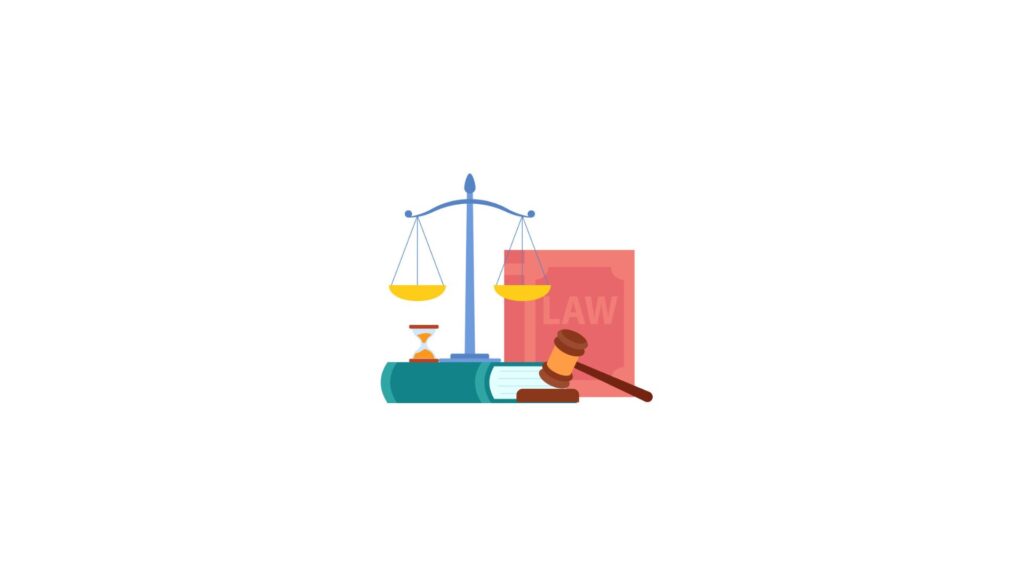
25 Jul Understanding Retraction in Legal Proceedings: Key Cases and Implications

Introduction
Retraction is a crucial legal concept that involves the withdrawal of a statement previously made. In the context of legal proceedings, especially under statutes like Section 132(4) of the Income Tax Act or Section 70 of the CGST Act, 2017, retraction can significantly impact the outcome of a case. Understanding the nuances of retraction is essential as it does not automatically nullify the statement but requires careful legal scrutiny to determine its validity.
Legal Framework
Statutory Provisions: Section 132(4) of the Income Tax Act
Section 132(4) of the Income Tax Act provides for the examination of individuals during a search and seizure operation. Statements made under this section can be retracted, but such retractions are subject to judicial review and must be evaluated based on the facts and circumstances surrounding the case.
Statutory Provisions: Section 70 of the CGST Act, 2017
Similarly, Section 70 of the CGST Act, 2017, deals with the powers of the authorities to summon persons and record statements. A retraction under this provision must be handled carefully, ensuring that the reasons for retraction are valid and substantiated.
General Principles of Retraction
Retraction of statements must be made promptly and with proper justification. The validity of a retracted statement is not automatically nullified but is subject to further legal examination to ascertain if the initial statement was made voluntarily and if the retraction is credible.
Why Retraction Matters
Impact on Legal Proceedings
Retraction can significantly influence the trajectory of legal proceedings. A retracted statement might weaken the case of the party that relied on it initially, affecting the overall evidence presented in court.
Consequences of Retraction on Evidence
While a retracted statement does not become void, its weight as evidence is reduced. Courts must assess whether the retraction was made under duress or if it reflects a genuine change in circumstances.
Case Law Overview
Introduction to Case Laws
Case laws provide valuable insights into how retractions are treated by the courts. Understanding judicial precedents helps in evaluating the legal standing of retracted statements.
Importance of Judicial Precedents
Judicial precedents guide how similar cases are handled and provide a framework for evaluating the credibility and impact of retractions in legal proceedings.
Case Analysis: COMMISSIONER OF CUSTOMS (PREVENTIVE) vs RAJENDRA KUMAR DAMANI @ RAJU DAMANI
Introduction
In the case at hand, the Calcutta High Court addressed the validity of a retracted statement given under customs law and its implications for the determination of whether the gold involved was smuggled or legally acquired.
Facts of the Case
The respondent argued that the gold bars seized were made from old gold jewelry purchased in cash. This plea was not substantiated with documentation proving the origin of the gold. The tribunal erroneously shifted the burden of proof to the department, leading to a finding that was deemed perverse. Additionally, the purity of the gold and the circumstances of the statement’s retraction were contested. The tribunal’s decision overlooked the validity of the retraction and did not address the evidence presented by the revenue.
Issue
The central issue was whether the retracted statement could be considered involuntary or unlawfully obtained solely due to its retraction. The case questioned whether the tribunal’s conclusions were based on proper scrutiny of the retraction and the evidence provided.
Held
The Calcutta High Court held that a retracted statement does not automatically become involuntary or unlawfully obtained merely because it was retracted. The court emphasized that the circumstances surrounding the retraction, including its timing and consistency, must be examined to assess its validity. The tribunal’s findings were deemed flawed due to their lack of foundational support and improper evaluation of the evidence. Consequently, the court allowed the appeal, set aside the tribunal’s order, and restored the adjudicating authority’s decision, affirming the order as it stood.
Case Analysis: NARSHINHA ALLOYS PVT. LTD. vs COMMISSIONER OF CENTRAL EXCISE AND SERVICE TAX
Introduction
The Customs, Excise & Service Tax Appellate Tribunal (CESTAT) in Mumbai reviewed an appeal by M/s Narsinha Alloys Pvt. Ltd. challenging the confirmation of a duty demand of ₹11,89,650 along with penalties and interest. The demand was based on allegations of clandestine removal of manufactured products for the period between April 1, 2012, and August 31, 2012.
Facts of the Case
M/s Narsinha Alloys Pvt. Ltd. is engaged in manufacturing MS structural items under the Central Excise Tariff Act, 1985. The Directorate General of Central Excise Intelligence (DGCEI) uncovered information suggesting that the appellant had received unaccounted ship-breaking scrap from M/s Vikram Iron, which was used in their manufacturing process without proper documentation. Following an investigation, a show-cause notice was issued. The Assistant Commissioner of GST & Central Excise, Nashik-II Division, initially absolved the appellant of these charges. However, the Commissioner of GST & Central Excise (Appeals) overturned this decision, confirming the duty demand and penalties. This order was contested by the appellant before the CESTAT.
Issue
The primary issue was whether the Commissioner (Appeals) had correctly confirmed the demand of duty and penalties based on the evidence provided, which included statements retracted by the appellant and documents recovered from a third party. The case questioned the validity of the evidence and whether the principles of natural justice were upheld, particularly concerning the denial of cross-examination and the treatment of retracted statements.
Held
The CESTAT allowed the appeal, overturning the order of the Commissioner of GST & Central Excise (Appeals). The Tribunal found that the demand was improperly sustained. Key findings included the lack of direct evidence from the appellant’s premises, inadequate investigation of physical documents, and the denial of cross-examination, which violated principles of natural justice. Additionally, the retracted statement of the appellant’s director, recorded under duress, could not substantiate the clandestine removal claims. Consequently, the Tribunal set aside the Commissioner’s order, granting relief to the appellant.
Case Analysis: COMMISSIONER OF CUSTOMS CENTRAL EXCISE AND SERVICE TAX, SILIGURI vs SUBODH DAS
Introduction:
On March 14, 2023, the Calcutta High Court delivered a judgment in several cases concerning the alleged smuggling of betel nuts. The appeals, filed by the Commissioner of Customs, Central Excise and Service Tax, Siliguri, challenged a common order by the Customs, Excise, and Service Tax Appellate Tribunal (CESTAT) dated December 20, 2021. The Tribunal’s decision had favored the respondents in these cases, leading the Customs Authorities to seek redress from the High Court.
Facts of the Case:
The cases under appeal involved the seizure of betel nuts by Customs authorities, who alleged that the goods were smuggled. The respondents in these cases were accused of importing betel nuts through unauthorized routes. The Customs authorities relied on statements recorded under Section 108 of the Customs Act, 1962, and other evidence to argue that the goods were smuggled. However, the Tribunal found that the Customs authorities had not established the smuggled nature of the goods and criticized the lack of independent evidence, proper cross-examination, and the reliance on retracted statements.
Issue:
The central issue was whether the Tribunal erred in its judgment by Incorrectly determining that the burden of proof regarding the smuggling of goods was not met by the Customs authorities, Misinterpreting the factual and legal aspects of the case, including the validity of evidence and the rejection of cross-examination requests . Additonally, Failing to appreciate that the goods were indeed smuggled based on the evidence provided.
Held:
The Calcutta High Court upheld the Tribunal’s order, affirming that the Customs authorities had failed to meet their burden of proving that the seized betel nuts were smuggled. The Court concurred with the Tribunal’s view that the evidence provided was insufficient to substantiate the claim of smuggling. The Court observed that the Tribunal had rightly assessed the legal and factual issues, including the reliance on retracted statements and the lack of proper cross-examination.
However, the Court modified the Tribunal’s order concerning the return of the perishable goods. Given that the goods were seized on March 1, 2016, and were likely unfit for consumption, the Court did not order their return. Instead, it directed that the respondent, Md. Tashin Shah, could apply for compensation for the value of the goods. The application for compensation should be made within thirty days from the receipt of the Court’s order.
Practical Implications of Retraction
Timing of Retraction
The timing of a retraction is critical. Prompt retraction can influence the court’s view on its validity and impact.
Legal Strategies for Retraction
Legal strategies for handling retractions involve presenting clear and justifiable reasons for the retraction and addressing any allegations of coercion or duress.
Challenges in Retracting Statements
Challenges include proving that the retraction was made voluntarily and providing sufficient evidence to support the retraction’s credibility.
Conclusion
In conclusion, retraction is a significant legal concept that can affect the validity and impact of statements made during legal proceedings. While a retracted statement does not become automatically void, its validity must be carefully assessed based on the surrounding circumstances. Understanding judicial precedents and practical implications helps in navigating the complexities associated with retractions.


No Comments